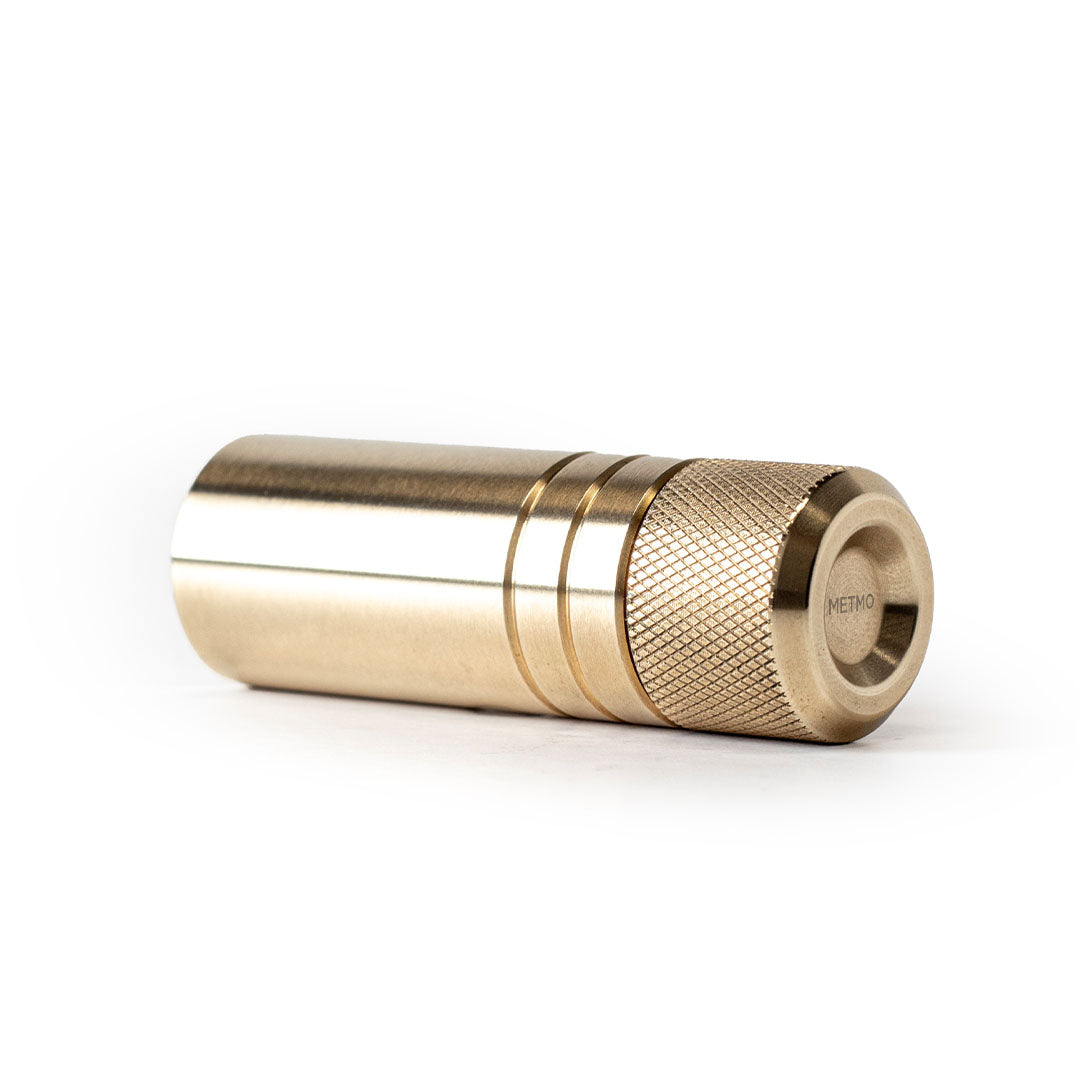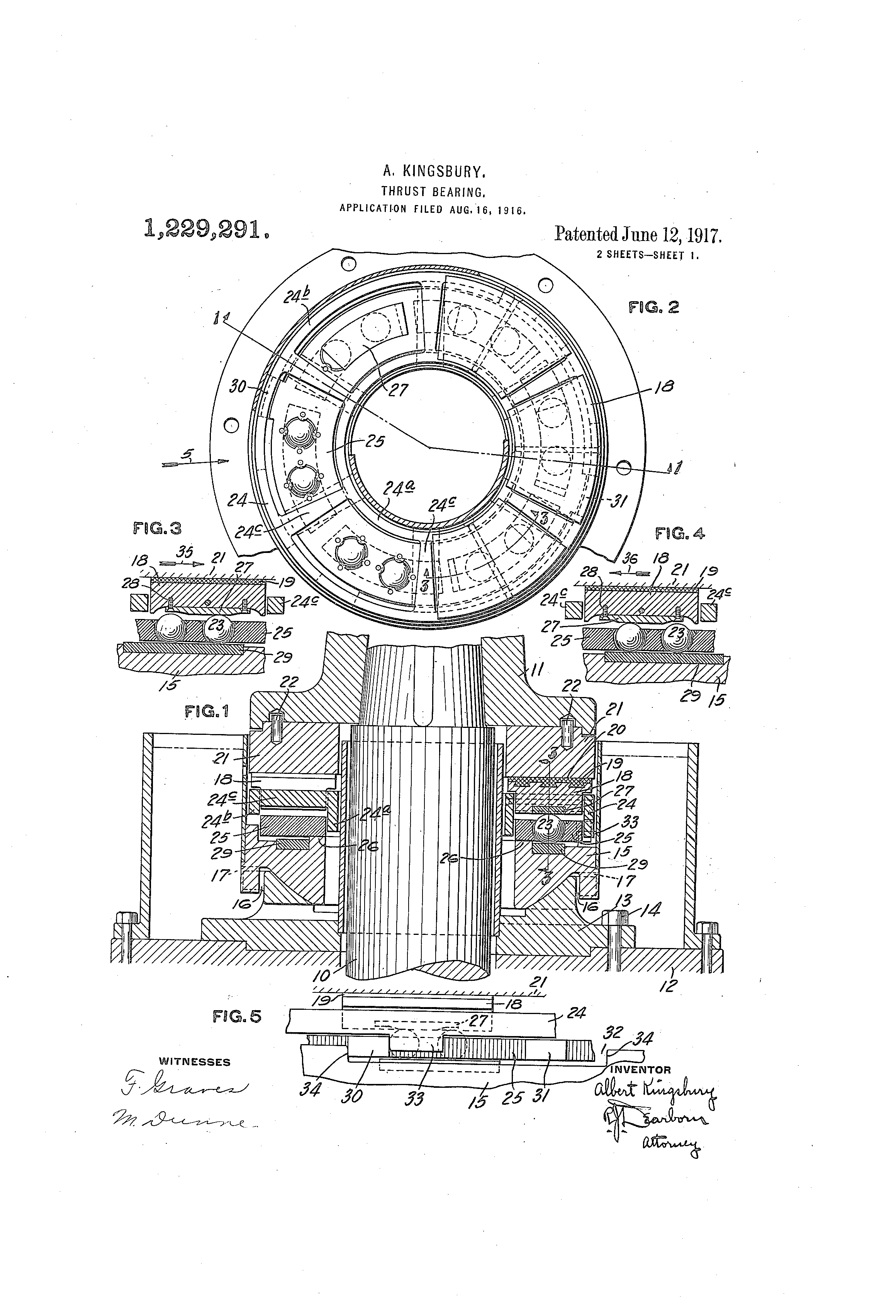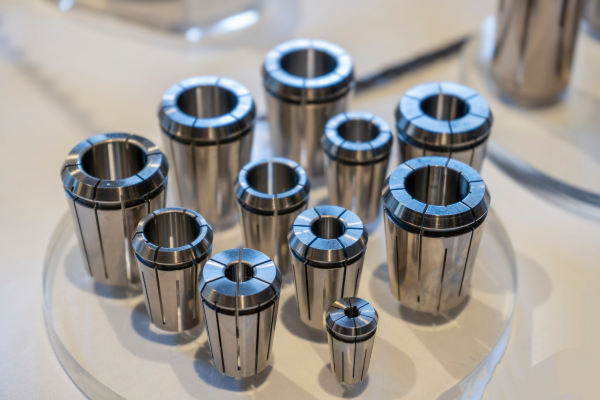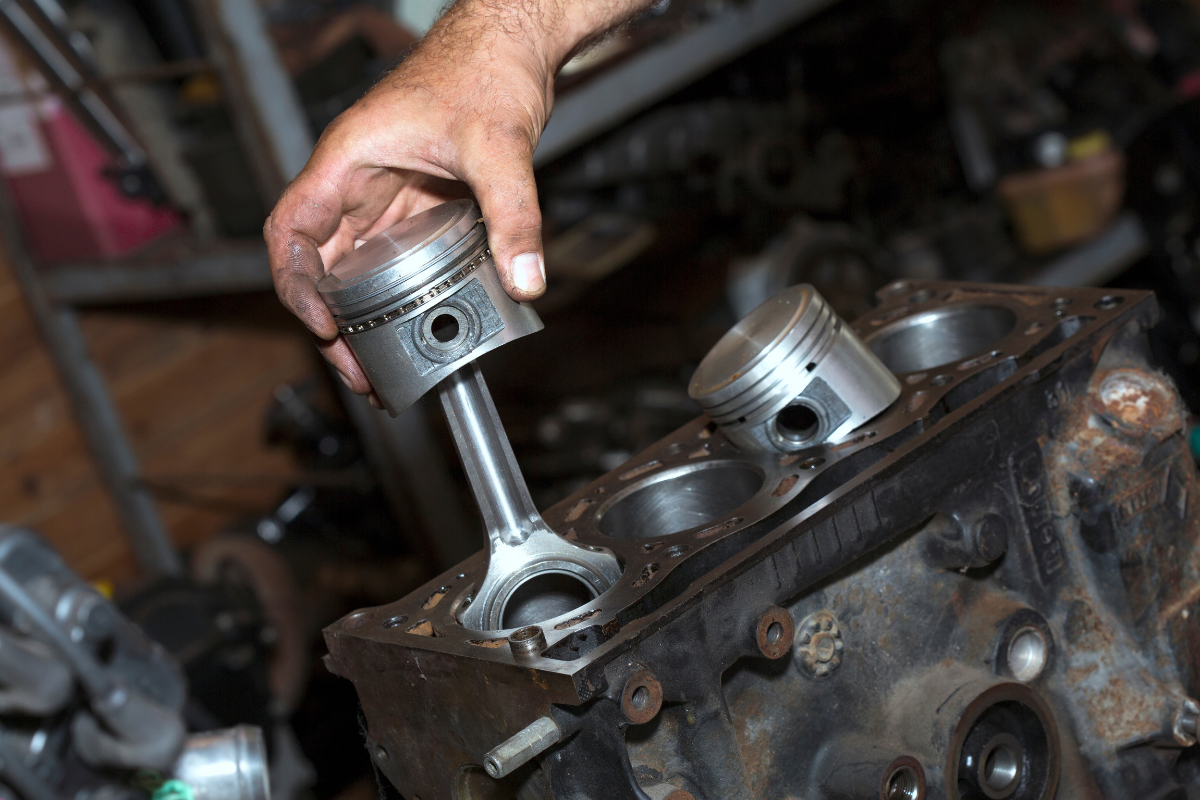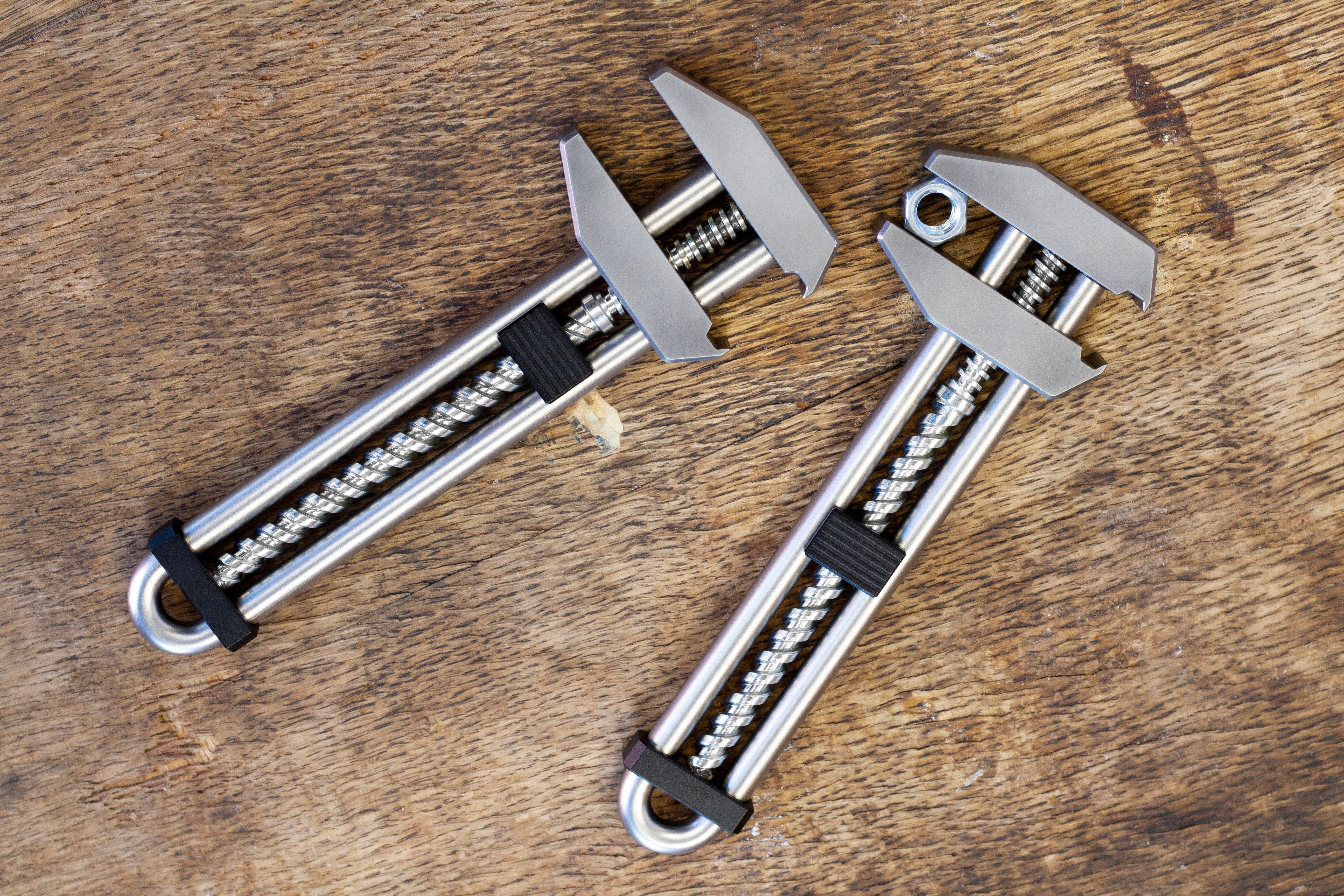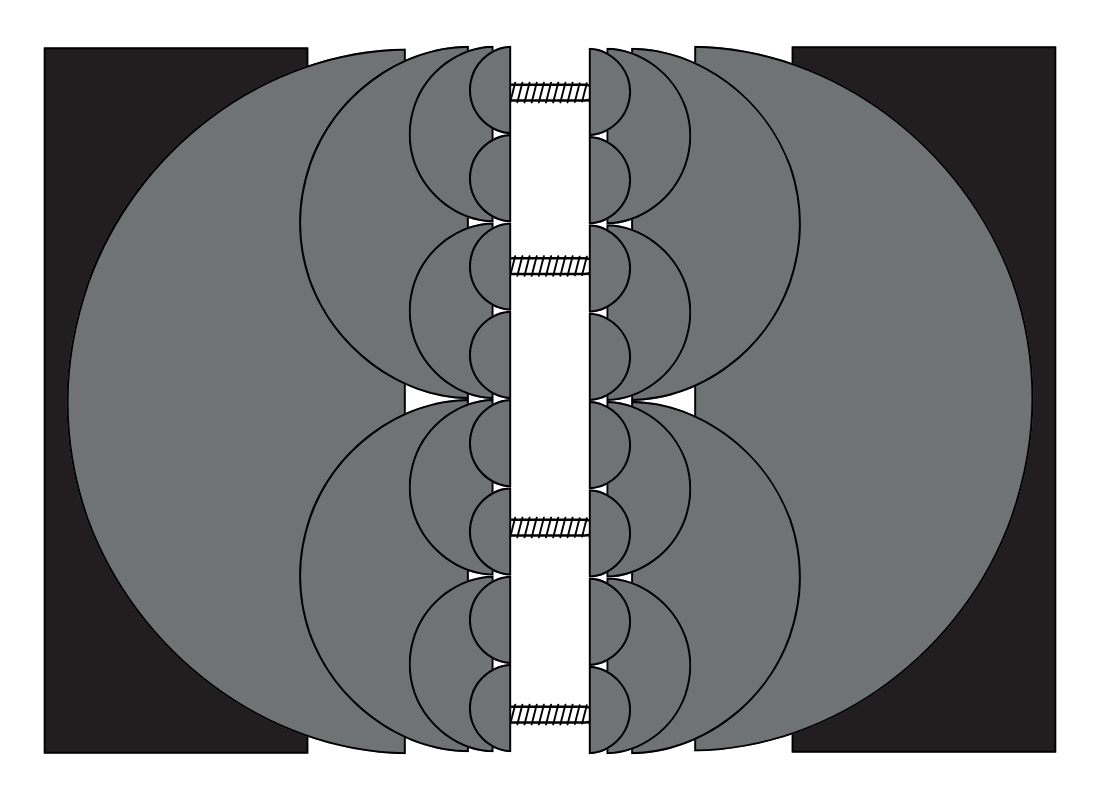The MetMo Blog
We love all things engineering. From deep dives into our products to historical explorations, there’s a wealth of information just waiting for you on the MetMo blog!
Pro tip! Search ‘Pocket Driver’ to get your descent into MetMo started.
Latest Blog Posts
We dove deep into the origins of the fractal vice, tracing it back to 1913 and Austrian inventor Paulin Karl Kunze. Patented worldwide, his clamping creation evolved into the Mantle Vise in 1920s New York—complete with intricate dovetail joints and jaw configurations that could grip just about anything.
Despite its genius, the vice vanished by the 1930s, a casualty of the rise in mass production. But its legacy lives on—in our hands. We're reimagining this brilliant design, testing new jaws, and pushing the limits of what a vice can do.
The past has never been this gripping.
Da Vinci did what? 6 of his concepts you’ve (maybe) never heard of
Leonardo da Vinci wasn’t just the guy behind the Mona Lisa—he was the OG mechanical mastermind. In this post, we dig into six of his most surprising and underrated inventions, including a 15th-century CVT, a hand-cranked blender, a scuba suit, and even an early corkscrew (priorities, right?).
These wild concepts show just how far ahead of his time he was—and why we at MetMo love over-engineering the everyday. If you’re into mechanical creativity, historical oddities, or just enjoy breaking things to see how they work, you’ll feel right at home.
Because even 500 years later, a great idea never rusts.
The hands-on history of fidget toys
Fidgeting isn’t just a modern-day habit—it’s a centuries-old craft. In this deep dive into the hands-on history of fidget toys, we explore how these tactile tools evolved from ancient curiosities into precision-engineered marvels. From Baoding balls to ball bearings, we uncover the ingenious designs that keep fingers busy and minds focused. At MetMo, we celebrate the fusion of engineering and play—because sometimes, the best ideas come when your hands are in motion.
How aerodynamic bearings became engineering’s smoothest operators
We delve into the fascinating world of air bearings—components that use a thin film of pressurised gas to provide a low-friction interface between surfaces.
The ‘Watch-ima-collet’: The Time-Ticking History of The Collet
From dainty 18th‑century watch benches to roaring factory floors, the collet shows how micro‑innovations can power mega transformations. Tiny sleeve, massive impact—grip tight, friends!
The history of the engine piston (ft. lots of ups and downs…)
We delve into the evolution of the engine piston—a component that plays a pivotal role in converting energy into motion. From its early use in air-pumping systems around 150 BC to its development in steam engines during the 18th century, the piston has undergone significant transformations.
How aluminium alloys have taken off in the aerospace industry
Lightweight, strong, and resistant to corrosion—aluminium alloys have become the unsung heroes of the aerospace world. In this post, we chart the rise of these versatile materials, from their early adoption in aircraft frames to their critical role in modern spaceflight. Discover why aluminium alloys have become a go-to choice for engineers pushing the limits of performance, and how their unique properties continue to shape the future of flight.
Getting to Grips With the Fractal Vise
In our latest update, "Getting to Grips with the Fractal Vise," the team delves into the intricacies of our innovative clamping tool. The Fractal Vise is designed to securely hold objects with irregular shapes, such as round tubes or delicate models, by using six independently moving jaws that conform to the object's contours. This design allows for a firm grip without damaging the workpiece, making it ideal for tasks like filing, painting, or drilling. The vise is available in two sizes: the Fractal Vise 32 and the Fractal Vise 82, catering to different project needs.
A seamless look into Wire Electrical Discharge Machining (Wire EDM)




